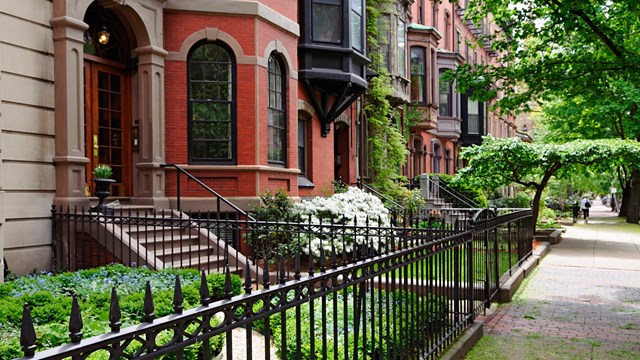
Whether you live in a suburb or in the heart of the city, life is expensive. Sometimes it can feel as though everybody from the barista at your favorite coffee shop to the kid who bags your groceries is trying to nickel-and-dime you half to death. Tip jars are everywhere, sometimes decorated with winsome appeals for change, and sometimes just sitting there expectantly, waiting for you to pony up.
The holiday season compounds the issue: there are gifts to be bought, travel to be booked, parties to attend, inclement weather to worry about … and the anxiety that many of us feel when we try to figure out what kind of tip to give the people who (hopefully) make our everyday life a little easier: our building and HOA staff.
Clearly, a reward for work well done is a welcome gift, especially at this time of year. Building superintendents, chief engineers, maintenance persons and handymen often find themselves under sinks or in dark basements at odd hours, patching leaky pipes or coaxing temperamental boilers back to life.
While building staff in colder climates shovel snow, scatter salt, and do a score of other tasks made that much harder by winter weather, Sunshine State staff members deal with heat, humidity, and the merciless southern sun as they go about their duties. Regardless of the temperature, doormen and lobby attendants wait patiently, ready to help you with your shopping bags or call you a cab. At this time of year, it’s not only customary to show your appreciation for the work your building or association staff does for you and your neighbors—it’s just plain good manners.
Why Tip?
“But,” you may ask, “why tip at all? Opening the door and helping residents out is the doorman’s job—he or she gets a salary already.” A good point, and one that bears closer examination. In North America, the word “TIPS” in modern parlance is actually an acronym for “To Insure Prompt Service,” and the list of people who are commonly tipped includes hair and nail salon workers, bellhops, cab drivers, newspaper delivery people, porters, valets, bartenders, and of course, restaurant wait staff.
Recognizing Your Staff
With the advent of modern multifamily housing, apartment building and homeowner association staff joined the tip list. As far as your building support staff is concerned, the word “TIPS” could very well stand for “Time-Intensive Perpetual Service,” since many maintenance and support workers often live on-site and are essentially on-call 24 hours a day. Though you may tip your custodian or your doorperson throughout the year for doing various small jobs for you, it’s good manners—and a gesture of appreciation for all they do—to give your building staff a little something extra during the holidays. According to etiquette-master Emily Post, holiday tipping “is a way to say ‘thank you’ to those who have provided service to you throughout the year—letting them know you’re pleased with what they have done for you.”
When it comes to HOA or condo building staff, there are no hard-and-fast rules on exactly how much to tip each member of your association’s staff; indeed, it’s next to impossible to put a price tag on a secure building, an important package collected in a timely manner, or a happy, tail-wagging dog who your doorman was kind enough to walk because you were stuck in traffic.
That said, there is one caveat boards must keep in mind when the holidays roll around and tipping is on people’s minds: whether it’s appropriate—or even legal—to use common funds for tips and bonuses. In a recent case, an HOA in Boca Raton, Florida, was ordered to cease using the association’s common funds to give the employees of its management firm holiday bonuses. In short, the condo’s bylaws forbade using common funds for paying non-HOA employees, and the condo’s contract with its management company made it explicit that management company staff were not association employees. Therefore, spending common funds on bonuses, as nice a gesture as it was, represented an improper use of funds.
According to attorney Eric Glazer of Glazer & Associates in Fort Lauderdale, “I always get asked about the board’s right to dip into the operating account to give Christmas bonuses to association employees. Unfortunately, the answer is that unless the association is contractually obligated to pay these employees a gift or year-end bonus, and this amount is included in the budget, the association cannot use the members’ funds for such a purpose.”
Glazer is quick to point out that this doesn’t mean that tipping or seasonal bonuses are illegal, or somehow improper—they just have to be given properly, in accordance with business law and an association’s own bylaws. If you want to gift the staff at your management company’s home office, “Do what we did in the co-op I grew up in in Brooklyn,” says Glazer. “One person goes around collecting money from everyone for all of the employees. Those who contribute get their name on the Christmas card that is given to the staff,” and those who don’t, don’t. (Whether that translates to quicker or slower response time to one’s maintenance service requests in the New Year is another matter...) Don’t just assume you can withdraw a fat stack of bills from your HOA’s operating fund and start stuffing Hallmark cards.
By the Numbers
So either your documents support the giving of tips, or you’ve decided to take up a separate collection. There are a few basic variables to take into consideration when it comes to deciding how much to gift your HOA or building staff. According to Post’s website (www.emilypost.com), the main factors that help determine the gifts you give your building staff are:
• How pleased you are with their service
• The frequency of the service or how long you’ve known the person
• Your budget
• Your regional customs
• The type of establishment (a deluxe vs. more modest building or HOA)
Clearly, if you live in the basement of a Beantown triple-decker owned by your absentee uncle, the issue of tipping is hardly your first priority. Same goes if you’re part of a super-self-sufficient cooperative community that composts its own mulch and where every household has a hand in daily maintenance and upkeep.
If your building or HOA is like most however, the following chart should help you figure out who gets what. The various amounts quoted below are averages of suggested figures published by Emily Post, the folks at tipping.org, and financial advisor Jean Chatzky, financial editor for NBC’s Today Show and Financial Ambassador for the AARP.
Building Superintendents and Building Maintenance Personnel: $30—$100. According to Chatzky, “There’s a pretty wide range here, depending on whether you live in a luxury building or a more run-of-the-mill one, and how much the staff is at your beck-and-call during the year.”
Doormen: $25 and up. According to Tipping.org’s holiday tipping guidelines page, “Take into consideration how nice they are to you, if you get lots of visitors or deliveries, and if they’ve actually opened the door for you always. To maintain this level of quality service, you have to pay for it.”
Building Custodians/Porters: $20—$30. These people have a difficult, sometimes unpleasant job. If your kid dropped gooey candy or popcorn all over the lobby carpet, or your dog committed an indoor indiscretion at any point during the year, you owe it to your custodian to remember.
Handymen: $20—$30. This is an instance when the amount of your tip is directly proportionate to the amount of work you’ve requested from your building/HOA handyperson during the year. If you just greet each other in the hall, the lower end of the range should suffice. If you’ve gotten him or her out of bed in the dead of night to fish your cat out of the garbage chute … ask yourself how much such a task is worth to you, and show your appreciation accordingly.
Garage Attendants: $10—$25. If you use your car at odd hours, or if the attendants in your association’s garage or parking lot take special care of your vehicle, or have it ready for you when you get there, an acknowledgment of their attention is in order. You may tip each attendant individually, or earmark a half-month’s parking rate to be divided among the garage staff.
Garbage Collectors: $15—$20. If your building has a contract with a private waste management company; $15 to $20 is the customary amount for holiday tips, according to Tipping.org.
Mail Carriers: Same as garbage collectors.
There is another caveat here, though. Government agencies—including the U.S. Postal Service and municipal sanitation departments—prohibit their workers from receiving money as a gift or gratuity, but there’s no law against doing nice things for people at holiday time, or any other time of year. As long as the value of the gratuity or gift doesn’t exceed $20 or so, there should be no problem. Fresh baked goods or coffee shop gift cards are never a bad idea, and a letter of appreciation to your mail carrier or sanitation team’s supervisor is another great way to let them know how much you appreciate their work.
Other Folks
There is a host of other people you might also want to remember during the holidays—personal trainers, nannies, housekeepers, babysitters, your hair stylist—and the range of what’s considered an appropriate tip for these professionals is wide, and left mostly to personal judgment. You need not tip your property manager or the outside contractors that work at your property.
As for how to deliver a holiday bonus to members of your HOA staff, it’s entirely up to the community in question—but anecdotal information suggests that an email or note from the board to all residents a few weeks before the holidays encouraging them to acknowledge their staff’s hard work during the year is a great way to get the word out. Residents can give their tips individually, or all drop off their gift/s with an appointed collector (the board treasurer or secretary is a good choice for this task) who can deliver all of them to the staff at once.
Regardless of the cash value or method of delivery, however, Chatzky stresses the importance of “making sure that you present your tip as an actual present. Put it in a nice card, write a personal note, and deliver it personally rather than, for example, just taping it to the garbage can. And cash is appreciated, rather than checks.”
In what can sometimes seem like a very uncivilized world, it’s important to remember to make a gesture of civility and appreciation to the people who make it their business to lend you a hand and make your life easier—and the holiday season offers a perfect opportunity to do just that.
Hannah Fons is a senior editor for New England Condominium and other publications.





Leave a Comment